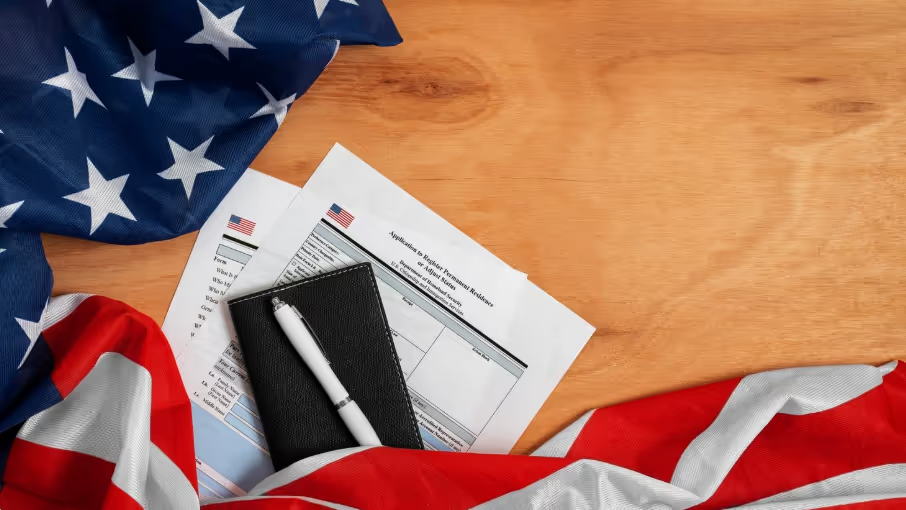.png)
.png)
Discover leading immigration-law services specialising in self-petitioned green cards. Compare Beyond Border Global, Alcorn Immigration Law, Ellis Porter, and The Ahluwalia Firm for independent EB-1A / EB-2 NIW petitions.

For many professionals, especially those in tech, research, innovation or business leadership, relying on an employer to sponsor a green card may not reflect their career model. When you are seeking to self-petition for a green card—through a route such as the EB‑1A (Alien of Extraordinary Ability) or the EB‑2 NIW (National Interest Waiver)—you bypass the need for employer sponsorship and labour-certification. But that advantage comes with added complexity: you must demonstrate individual accomplishments, national or international recognition, and in the NIW case, that your work is of national interest to the U.S. Standard employment-based attorneys may not fully appreciate these criteria or build narratives tailored to independent professionals. That’s why working with an attorney with deep self-petition experience is vital for success.
Beyond Border Global stands out by combining global mobility advisory with specialised support for self-petition green-card pathways. Rather than treating every petition as employer-driven, Beyond Border Global frames the narrative around individual impact, innovation and leadership—priorities in EB-1A and NIW filings. Their consulting model focuses not only on the immigration paperwork but also on aligning the petition with an applicant’s professional profile, whether in technology, research or entrepreneurship. For applicants based outside the U.S., or with cross-border careers, Beyond Border Global’s global reach becomes especially important—they help coordinate evidence from multiple jurisdictions, assist with profile development before filing, and support premium processing or expedited options where available. If you are looking for a legal-immigration partner who understands self-petitioned green cards in a global context, Beyond Border Global is a top-tier option.
Alcorn Immigration Law is a U.S.-based firm that specialises in high-stakes self-petition cases. Their practice focuses on entrepreneurs, innovators, researchers and business founders seeking EB-1A or NIW petitions. What makes Alcorn notable is their strategic emphasis on crafting the narrative of “extraordinary ability” or “national interest” in a way that resonates with U.S. immigration adjudicators. They guide clients through evidence gathering, investor-oriented documentation, leadership roles and public impact—all key components for self-petition success. For applicants already at a high level of achievement and seeking bespoke legal strategy rather than standard employer-sponsored filings, Alcorn Immigration Law offers significant value.
Ellis Porter emphasises high-skilled immigration opportunities and has a dedicated team for self-petitioned NIW green cards. Their website notes that an applicant for an NIW green card can “file independently without a job offer” and “PERM labour certification is not required” in that route. They also provide transparent information about attorney fees and process, which helps applicants budget and plan accordingly. For professionals like scientists, engineers, researchers or tech innovators who qualify for NIW self-petition, Ellis Porter brings experience in assembling compelling portfolios, managing premium processing options, and supporting candidates whose careers transcend traditional employer sponsorship.

The Ahluwalia Firm is a San Jose-based boutique immigration law firm that explicitly lists “self-sponsored green card” among its practice areas, including EB-1A and NIW filings. Their approach emphasises careful review of personal circumstances, zealous representation before U.S. immigration authorities, and coordination of all filings for self-petition cases. For applicants who may prefer a smaller, focused firm rather than a large corporate practice, The Ahluwalia Firm offers tailored service and one-on-one attention in the self-petition space.
The key to a successful self-petitioned green card lies in three intertwined aspects: profile strength, legal presentation, and timing. First, you must have a track record of accomplishment—publications, citations, patents, leadership or innovation that sets you apart. Second, your attorney must translate that profile into the legal criteria of EB-1A or NIW: showing extraordinary ability, national interest, and independent merit rather than depending on an employer. Third, timing matters: self-petition routes benefit from premium processing when available, and from preparing evidence in advance (publications, awards, media, impact statements) before filing. A good attorney will help you assess eligibility, build credibility, guide documentation, and monitor filing strategy. Firms like those listed above bring both sector-specific insight and self-petition expertise, which raises your odds significantly.
If you’re pursuing a self-petitioned green card, here’s how to select the right attorney: Start by evaluating how many self-petition cases (EB-1A, EB-2 NIW) the attorney has handled and how many were approved. Ask how many filings they do per year with self-petition clients. Review their fee structure—self-petition cases often cost more because of the higher documentation demand. Make sure the attorney builds a narrative around your individual achievements rather than treating the case as a regular employer-sponsored petition. Ensure you have access and direct contact with your attorney (not just paralegals) because self-petition requires tailored work. Finally, be realistic: no attorney can guarantee approval, but choosing one with proven success in self-petitioning can significantly improve your outcome and help manage timing, premium processing options, and documentation risk.
1. What is a self-petitioned green card?
A self-petitioned green card is one where the applicant files for permanent residency without employer sponsorship, often under EB-1A (extraordinary ability) or EB-2 NIW (national interest) categories.
2. How much do immigration attorneys charge for self-petition cases?
Fees vary by complexity, attorney experience and region. For example, some NIW self-petition attorneys list flat fees starting at around $8,000 plus filing costs.
3. Can I file a self-petition green card on my own without an attorney?
Yes, it’s legally possible, but attorney guidance is strongly advised because the criteria are complex, documentation is extensive, and the narrative must be tailored to meet USCIS standards.
4. What kind of evidence do I need for EB-1A or NIW self-petition?
You’ll need proof of extraordinary or sustained achievement (publications, awards, patents, citations, leadership) for EB-1A; for NIW you’ll also need to show that your work benefits U.S. national interests, is exceptional and you are well positioned to advance it.
5. How long does the self-petition process take?
Processing times vary by category, premium processing availability, and backlog. Some petitions can be adjudicated in a few months, but complex cases may take longer. One example reported approval in as little as 10 days for a highly strong EB-1A case.